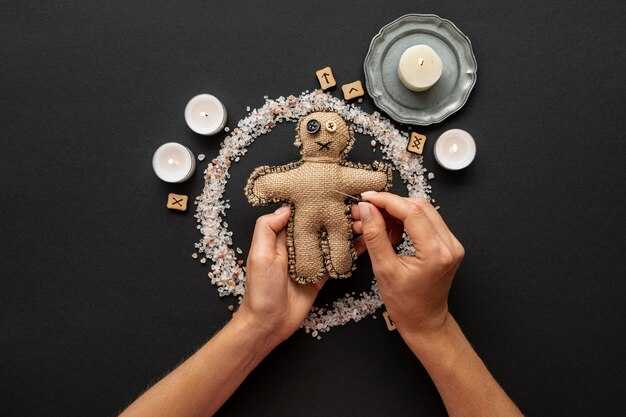All right — if you arranged a spa day for your partner or encouraged her to spend Mother’s Day out with her friends, nice work. That said, a quick reminder (and this applies to all of us, myself included): there are a few easy ways we can accidentally spoil the peaceful day we intend for her. One: don’t call to ask when she’ll be home, and don’t quiz her about what to feed the kids — truly give her the day off. Two: do everything you can to avoid adding to her mental load. That means making sure the children are safe and fed and that she won’t come back to a chaotic house. I’m not suggesting you aren’t usually helpful — I’m asking you to go above and beyond on Sunday. Picture her returning and trying to keep relaxing; she won’t be able to if the place is messy. If dishes, the sink, or clutter bother her, handle those things. If she normally makes dinner, take over the cooking so she doesn’t have to think about it. Three: so many mothers feel guilty about taking personal time — they feel bad when they’re not doing something, even though they’re always giving. Ask her if this sounds like her, and then reassure her that she shouldn’t carry that guilt. Remind her that her value doesn’t depend on pouring from an empty cup, that she deserves this break, and that you want to give it to her. Many moms battle harsher inner voices than we realize, so tell her she’s worthy of kindness and respect and that she can count on you. That’s what she really wants for Mother’s Day — the spa is just part of it.
Useful additions to make the day truly restorative:
- Plan ahead the night before: Pack any bags she needs, lay out the kids’ clothes, make a simple breakfast or set out cereal and bowls, and start a load of laundry if that reduces post-day work. Small prep eliminates decisions later.
- Take full ownership of the morning routine: Feed the kids, manage baths/dressing, school runs or activity drop-offs, and handle any medication or appointments without checking in repeatedly. Treat the morning as your job for the day.
- Keep the house calm and tidy: Run the dishwasher, wipe counters, clear toys from main living spaces, and make the bed. If you don’t normally notice clutter, ask yourself what would most likely interrupt her relaxation and fix those things.
- Handle meals: Cook or order dinner, prepare snacks, and make sure lunch options are easy to access. If you plan to cook, choose simple, ready-to-eat meals so you don’t add stress to the evening.
- Manage logistics and communications: If kids or relatives usually text or call her, be the point person for updates. Silence non-urgent notifications and don’t call to “check in” on minor things.
- Cover pet care and errands: Walk the dog, clean the litter, and take care of any scheduled pickups or drop-offs so she can fully disconnect.
- Be prepared for kids’ emotions: Have activities, screen-time options, and simple games ready. If a meltdown happens, be patient and handle it — don’t offload it onto her after she returns.
- Offer explicit reassurance: Tell her she doesn’t need to “earn” this time. Say things like “You don’t need to worry about anything today — I’ve got it” and mean it.
Night-before and day-of quick checklist
- Pack spa bag (robe, flip-flops, wallet, phone charger)
- Lay out clothes for kids and spouse doing drop-offs
- Prepare easy breakfast and snacks
- Run dishwasher and clear countertops
- Start laundry if that will prevent a pile-up
- Set up quiet activities for kids (coloring, puzzles, a movie)
- Arrange pet care and trash/compost if needed
- Silence non-essential calls and messages
Short phrases that help (say them genuinely)
- “I’ve taken care of dinner and the kids tonight — you don’t need to worry about a thing.”
- “Go enjoy yourself; I want you to relax.”
- “You deserve this. I’ll handle the house and the bedtime routine.”
- “If you want more time, take it — I’ll manage here.”
Follow-up matters: don’t treat Mother’s Day as a one-off. The real relief comes when extra help continues afterward. Ask what felt helpful and what didn’t, then adjust. Keep some of the same supports in place—shared calendars, rotating responsibilities, and regular check-ins about the invisible tasks—so her mental load stays lighter long after the spa day ends.
Communicating and Sharing Responsibilities Before, During, and After Mother’s Day

Assign one clear coordinator and create a shared checklist seven days before Mother’s Day; include a per-person budget ($30–$100), confirmed guest list, meal plan, gift buyer, childcare shifts, and a photography plan.
Follow a concrete timeline: 7 days before – finalize guest list, reserve table or confirm home menu, assign primary roles and set contribution amounts; 3 days before – purchase groceries, buy flowers or gifts, confirm childcare and transport; 1 day before – prepare make-ahead dishes, set the table, charge cameras/phones and place gifts where agreed; morning of – protect 60–90 minutes of uninterrupted time for mom, present gifts at a set time, then move into scheduled meal and activity slots.

Use two communication tools: a shared calendar event for times and a group chat for short updates. Sample messages: “Calendar: Mother’s Day timeline set – 9:00 quiet time, 10:00 gifts, 11:00 brunch. Please accept or suggest changes.” “Task assign: I’ll cook breakfast, Lena buys flowers ($30 max), Tom watches kids 9–11am.” Send a 24-hour confirmation: “Confirming roles for tomorrow: breakfast – Alex, brunch – Priya, cleanup – Marcus. Reply OK.”
Set a day-of schedule with time blocks and owners: 08:00–09:30 – protected personal time (no chores) for mom; 09:30–09:45 – gift moment (photographer 10–15 min); 10:00–12:00 – brunch service (cook + assistant); 12:00–13:00 – family activity or walk (sitter/assistant manages kids); 13:00–14:00 – cleanup and laundry triage. Share this schedule in the calendar so everyone sees start/end times.
Assign specific roles with estimated effort and limits: cook (2–4 hours prep/cook), assistant (1–2 hours for serving), childcare (scheduled 2-hour blocks), photographer (15–30 minutes), cleaner (1 hour post-meal). Set caps for purchases: flowers $30, gift $50–100, brunch extras $20–30. Collect receipts and settle shared expenses within 72 hours.
Create two contingency plans: Plan A (outdoor or at-home) and Plan B (restaurant or delivery). List one backup contact for childcare and one alternate venue. If weather or illness forces change, send a single update in the group chat with the new timeline and who covers each task.
Handle aftercare proactively: assign someone to start dishes and laundry within 2–4 hours after the main meal; send a thank-you message to mom and contributors within 48 hours along with 8–12 photos in a shared album. Sample thank-you: “Thank you for making today special. Photos are in the album; let us know any changes for next year.”
Collect brief feedback within 72 hours using three questions in the chat: 1) What worked best? 2) What should change? 3) Who wants to coordinate next year? Save the completed checklist and notes so next-year planning takes under two hours and mental load shifts predictably between household members.


 How to decrease her Mental load on Mothers Day">
How to decrease her Mental load on Mothers Day">

 Финальный жестокий трюк, который используют, когда вы перестанете заботиться (это ранит глубоко)">
Финальный жестокий трюк, который используют, когда вы перестанете заботиться (это ранит глубоко)">
 Любви будет недостаточно, чтобы СПАССТИ ваши Отношения!">
Любви будет недостаточно, чтобы СПАССТИ ваши Отношения!">
 Отношения не могут выжить без ЭТОГО">
Отношения не могут выжить без ЭТОГО">
 Цена, которую приходится платить за потерю вас.">
Цена, которую приходится платить за потерю вас.">
 How to Handle Difficult & Toxic People – Take Back Your Peace and Power">
How to Handle Difficult & Toxic People – Take Back Your Peace and Power">
 Why You Can’t Stop Obsessing Over the Abuser (Even After You Leave)">
Why You Can’t Stop Obsessing Over the Abuser (Even After You Leave)">
 Не недооценивайте избегающих: Архитекторы обмана | Стиль избегающей привязанности">
Не недооценивайте избегающих: Архитекторы обмана | Стиль избегающей привязанности">
 Женщин не привлекают «хорошие парни»">
Женщин не привлекают «хорошие парни»">
 What to Do When You’re In Love With Someone Who Can Ruin Your Life">
What to Do When You’re In Love With Someone Who Can Ruin Your Life">
 Stop Having Sex?! Why a Hiatus Unlocks an Avoidant’s Deepest Bond">
Stop Having Sex?! Why a Hiatus Unlocks an Avoidant’s Deepest Bond">